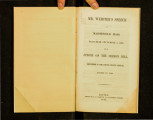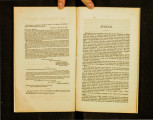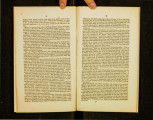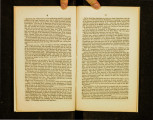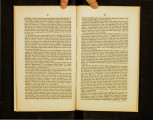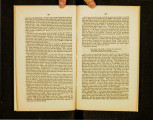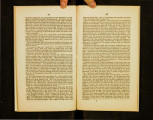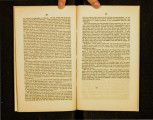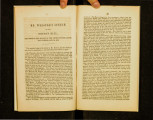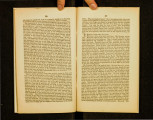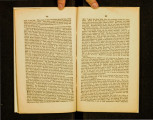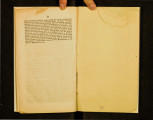| Title |
Mr. Websters Speech at Marshfield Mass. |
| Call Number |
E420 .W43 1848; Record ID 996750102001 |
| Date |
1848 |
| Description |
Webster, Daniel (1782-1852). Mr. Webster's Speech at Marshfield Mass. Boston: Press of T. R. Marvin, 1848 First edition E420 W43 1848 |
| Creator |
Webster, Daniel, 1782-1852 |
| Publisher |
Digitized by J. Willard Marriott Library, University of Utah |
| Subject |
Campaign Literature -- Whig; Oregon Territory -- Politics and Government; Slavery -- United States -- Speeches in Congress |
| Type |
Text |
| Format |
application/pdf |
| Identifier |
Mr.Websters_Speech_at_Marshfield_Mass.pdf |
| Language |
eng |
| Collection Name |
Rare Books Collection |
| Holding Institution |
Rare Books Division, Special Collections, J. Willard Marriott Library, University of Utah |
| Rights |
 |
| Scanning Technician |
Cedar Gonzlaez |
| Digitization Specifications |
Original scanned with Hasselblad H2D 39 megapixel digital camera and saved as 600 ppi tiffs. Display images created in Adobe Photoshop Lightroom 4 and generated in Adobe Acrobat ProX as multiple page pdf. |
| ARK |
ark:/87278/s6m34mm5 |
| Setname |
uum_rbc |
| ID |
298406 |
| Reference URL |
https://collections.lib.utah.edu/ark:/87278/s6m34mm5 |




